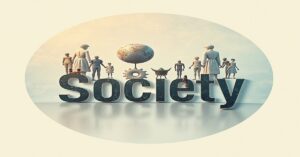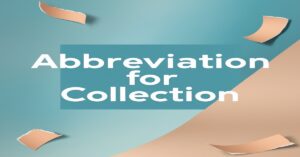So, you’ve just overheard your teen or tween casually throwing around the term “BBC” in conversation, and your brain immediately starts scrambling. “What on earth does that stand for?!” you wonder, trying to stay cool while pretending you know exactly what’s going on. But inside, you’re trying to remember if you missed some new episode of “Teen Speak 101” or if this is the latest TikTok craze you’re somehow not clued in on.
Well, let me reassure you, you’re not alone. The slang world is evolving at such a rapid pace that even the most seasoned parents sometimes find themselves scrambling for a glossary. And one term you might be encountering is “BBC,” which—trust me—does not refer to the British Broadcasting Corporation here (but imagine that curveball!). Instead, it’s shorthand for something that’s, well, a bit more… explicit.
Before you panic, let’s dive in. It’s time to decode this term once and for all, and I promise, we’ll keep it respectful, light, and hopefully a little entertaining.
What Does BBC Stand For?
Let’s clear the air right off the bat—BBC is an acronym that stands for “Big Black Cock.” It’s a term that is primarily used in adult conversations, specifically in the context of sexting or explicit adult content. It refers to a very specific physical attribute, and its usage can be highly sexualized or even racist depending on the context.
Now, don’t get me wrong; it’s not exactly something you’d hear on a family sitcom or in a casual conversation at the grocery store. But, with social media platforms, online gaming, and various chat groups, terms like these have found their way into casual conversations. Especially when kids and teens are trying to impress their friends with “insider” language, or—let’s be honest—get a rise out of parents who are just trying to navigate their day without learning too much about their kids’ digital worlds.
Why Do Teens Use It?
You might be wondering: why on earth would your child use such an explicit term? Are they trying to shock you? Are they just curious? Or maybe they’ve found it on a meme or seen it trending on a social media platform? The truth is, teens often use slang to bond with their peers, feel like they’re in-the-know, or simply to experiment with language in ways that feel rebellious or “cool.”
Here’s a little example to paint the picture:
Imagine a group of friends on a group chat, throwing around a few choice words or phrases that are just edgy enough to make them feel like they’ve unlocked a level of digital adulthood. It’s not that they necessarily understand the full weight of the words they’re using—it’s more about fitting in and adopting the lingo of the day. That’s when “BBC” might pop up.
In fact, you might not even need to look too hard to find slang terms like these lurking in your child’s online conversations. Your teen might toss around other acronyms, like “FOMO” (fear of missing out) or “YOLO” (you only live once), all in the name of belonging. But trust me, “BBC” is not the same thing as those harmless terms. It’s more adult and not something you want to just gloss over.
When Does BBC Appear?
The usage of “BBC” is common in spaces like private chats, gaming forums, or websites where adult content thrives. For some, the term becomes a part of their lexicon in these settings, and it can sometimes spill over into other types of conversations—like texting or chatting with friends.
So, let’s say your kid is chatting with a friend online. Out of nowhere, the acronym pops up, and now you’re left thinking, “Is this the time I have the conversation?” Yes, my friend. It probably is. It’s never a bad idea to check in with your kids about what they’re reading, saying, and sharing online.
Breaking Down the Usage
Let’s step into a typical situation where “BBC” could come into play—whether it’s a text thread or just a casual conversation at school. You might have two teenagers texting back and forth:
- Teen 1: “Yo, I heard about that BBC you posted last night. What a legend.”
- Teen 2: “Lmao, right? It’s wild, but honestly, I think it’s a bit overrated.”
Now, we’re not saying these kids are talking about the British TV network here. Nope, this is a full-on reference to adult content. The problem here is that while they might think it’s funny or just a casual thing, as a parent, you’re probably wondering why you weren’t warned about this phase in the parenting manual.
In these scenarios, the term is often used as a way to talk about adult films or fantasies without really diving into specifics. The language becomes shorthand, a way to refer to something that’s “off-limits” but somehow cool in the world of teens.
What Should You Do as a Parent?
Here’s the thing: you’re not expected to be up to speed on all the latest slang (unless, of course, you’re a teen in disguise). But when it comes to sensitive terms like “BBC,” it’s important to approach the situation with curiosity, not judgment.
- Ask Questions: If your kid drops “BBC” in a conversation and you’re not sure what they mean, it’s okay to ask. No, you’re not out of touch; you’re simply being a responsible adult. A light-hearted “What does that mean?” or “That’s an interesting acronym—care to explain?” can open the door for a deeper, more honest conversation.
- Set Boundaries: If your child is using this term or others like it frequently, you might want to set some boundaries around what language is acceptable at home. Make sure they understand that there are places for certain words and contexts where others just aren’t appropriate.
- Have the Talk: This is your chance to talk about consent, respect, and why certain terms can be harmful or even racist. While you don’t want to come down too hard, it’s vital they understand the implications of these words, especially when used to objectify others.
What Are Some Common Misconceptions About BBC?
Now, it’s time to bust some myths. Here’s a quick rundown of things people (parents included!) often misunderstand about the BBC term:
- It’s Just a Joke: While some teens use “BBC” in a lighthearted, “I’m so edgy” way, others may be using it seriously in a sexual context. Don’t assume it’s always a harmless joke.
- It’s Not Harmful: Unfortunately, language like this can perpetuate stereotypes or contribute to unhealthy body image standards. It’s a good idea to talk with your teen about the impact of these words.
- Only Adults Use It: Actually, teens and young adults are often the biggest users of slang like “BBC.” They may think they’re being clever or “in-the-know,” but it’s a sign that they need some guidance.
Wrapping It Up: Parents, You’ve Got This!
Okay, so now you’ve learned a bit about “BBC,” and I hope you’re feeling more equipped to handle any awkward moments with your kids. Here’s the thing—being a parent in today’s digital age is no easy task. Slang and internet culture are changing at lightning speed, but that doesn’t mean you can’t keep up with a little curiosity and a dash of humor.
So, what do you think? Have you ever had a conversation about this particular term with your teen? Or perhaps you’ve heard other slang that left you scratching your head? Drop your thoughts in the comments—let’s keep this conversation going!
FAQs: Decoding the BBC Slang
1. What does “BBC” mean in slang?
“BBC” stands for “Big Black Cock,” a term primarily used in adult contexts, particularly in explicit conversations or adult content. It refers to a specific physical attribute and is often used in a sexualized manner.
2. Why do teens use the term “BBC”?
Teens use slang like “BBC” to bond with their peers, experiment with language, or appear “cool” and rebellious. It often comes from social media, memes, or private online spaces like gaming chats.
3. Is “BBC” appropriate for casual conversation?
No, “BBC” is not considered appropriate for casual, non-adult conversation. It’s explicit and can be seen as objectifying or even racist depending on the context, so it’s important for parents to have conversations about appropriate language.
4. What should I do if my child uses this term?
If your child uses “BBC” or similar terms, it’s important to approach the situation with curiosity. Ask them what it means and discuss why it may be harmful or inappropriate. Set clear boundaries for language usage and educate them about the implications of certain slang.
5. Can slang like “BBC” be harmful?
Yes, terms like “BBC” can perpetuate stereotypes and unhealthy body image standards. They can also contribute to objectification and racialization, so it’s important to have a conversation with your child about the impact of using such words.
6. Where do teens come across terms like “BBC”?
Teens often encounter slang like “BBC” on social media, in memes, or within online communities such as gaming chats, forums, or private group chats. These spaces may make the language feel normalized or less taboo.
7. How can I talk to my kids about inappropriate slang?
To talk about inappropriate slang, approach the conversation calmly and with an open mind. Ask questions about where they heard the term, what they think it means, and how they use it. It’s a great opportunity to discuss consent, respect, and the importance of using language that uplifts others.
8. Are there other common slang terms I should be aware of?
Yes, slang evolves quickly, so it’s a good idea to stay aware of terms like “FOMO” (fear of missing out), “YOLO” (you only live once), and other trendy expressions. Some may be innocent, while others can have inappropriate or harmful meanings. Always check in with your kids about the terms they’re using.
9. How can I stay up-to-date on teen slang?
The best way to stay in the loop with teen slang is to ask your child directly or keep an eye on popular social media platforms, memes, and online trends. A little curiosity goes a long way, and your kids will appreciate that you care enough to stay informed.

Tony James is a passionate wordsmith and the creative force behind Winky Hive. With a knack for uncovering the stories behind slang and weaving emotions into poetry, Tony brings a unique voice to every piece he writes. A lifelong lover of language, he thrives on exploring how words evolve, connect, and inspire.
When he’s not penning articles or crafting verses, Tony enjoys diving into cultural trends, reading classic poetry, and discovering hidden gems in modern expressions. His mission? To make Winky Hive a haven for those who love the art of language in all its vibrant forms.









